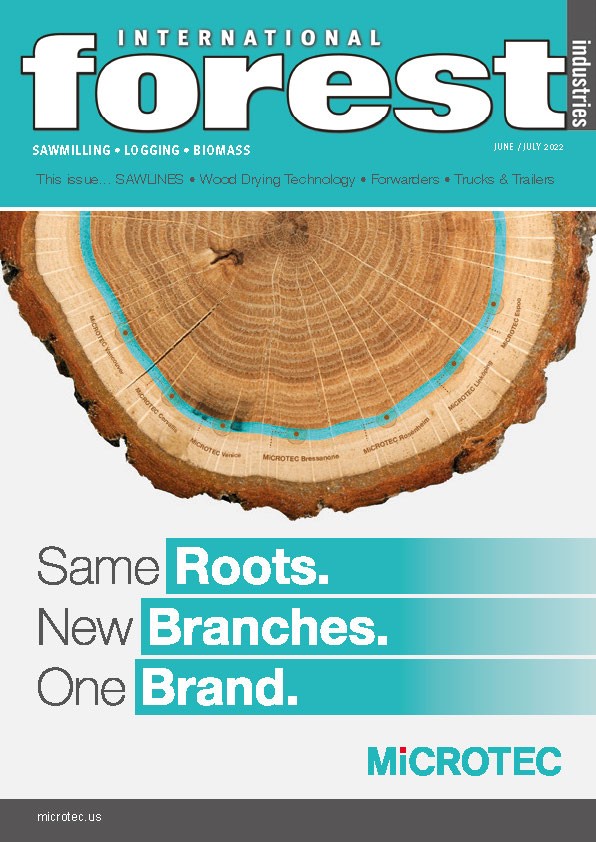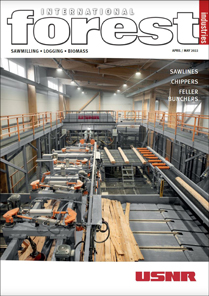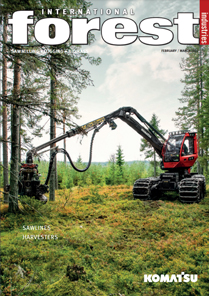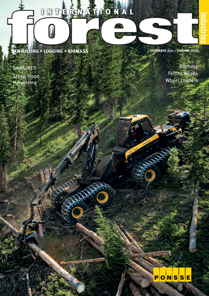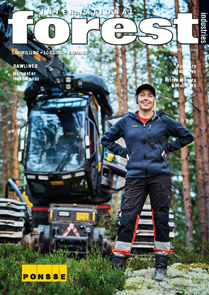EDITOR’S COMMENT
The imposition of sanctions and retaliatory export bans on Russian timbers stocks is unlikely to have a major effect on global forest industries, but suppliers of felling and sawing equipment could face an ongoing moral dilemma as they look to expand.
Russia’s war in the Ukraine has appalled most. The illusion of peace has veiled much of the civilised world since the end of the Second World War but President Putin’s aggression in attacking the Ukraine under the false pretence of – of all things – a humanitarian mission, has shattered that facade.
The warning signs were clearly there in the annexation of Crimea and Russia’s role in the Syrian Civil War, but most nations, set on peace and refusing to accept the reality of Russia’s ambitions (and paranoia) decided to turn a blind eye. Recent happenings in eastern Europe have rescinded that option for democratic nations.
The response has been unexpectedly coordinated. Sanctions have rained down on Russia like a blanked suffocating its economy, as Putin watches liquidity dry up and inflation rise in the initial consequence for his unlawful invasion.
His posturing response has been acutely directed at the timber sector. For Russia, known colloquially as the ‘Timber Bank’ because of its extensive reserves of natural forest that flourish across its vast land mass, this is one of the few levers it feels it can safely pull.
As it stands, despite being home to globally significant quantities of fertilisers, nickel, and platinum group metals – to name a few raw materials in which the nation has a major global position – timber is the only Russian commodity subject to an export ban as a direct result of Western sanctions.
Readers of this magazine are no doubt already aware Russia is the world’s biggest exporter of lumber and the nation sits at number seven in terms of forestry product exports, like wood pellets and sawn wood.
True enough, China is the most significant recipient of Russian products but the withdrawal of this feedstock from the market will be unwelcome in Western markets, too. After all, the country delivered some 10% of hardwood plywood to the US in 2019, according to TimberCheck.
Despite the initial shock, Western forestry sectors are unlikely to see dramatic problems in sourcing wood stock.
For a start, most businesses had adjusted to tightening of supply over prolonged periods of lockdown during the pandemic. The relaxation of restrictions and subsequent drop in demand has granted many groups excess access to timber supply.
Secondly, there are plenty of other sources of wood that have gradually increased their capacity to supply Western economies.
Rather, the biggest challenge may actually fall on an increasingly global group of leading forestry equipment suppliers. Long a domestically dominated and parochial industry, forestry professionals and equipment suppliers have belatedly embraced globalisation and the export opportunities it presents.
Exporting equipment into the ‘Timber Bank’ is a major opportunity for many global suppliers. It is an entirely reasonably position for suppliers to consider themselves apolitical and simply follow the government sanctions imposed in the jurisdictions where they are domiciled, which would see most investments into Russian timber continue. But many groups have not been satisfied that is enough.
In a time when political and social pressures are the same thing, and when the middle ground has been abandoned to more and more extreme views, there will be pressure to limit involvement with any group that calls itself Russian.
Expanding export operations to take advantage of business opportunities in a major forestry market could become, ironically, bad for business if other partners decide government sanctions are insufficient.
This could post a difficult and unfair challenge to many groups we have supported in spreading their global reach.
Enjoy
Chris Cann




